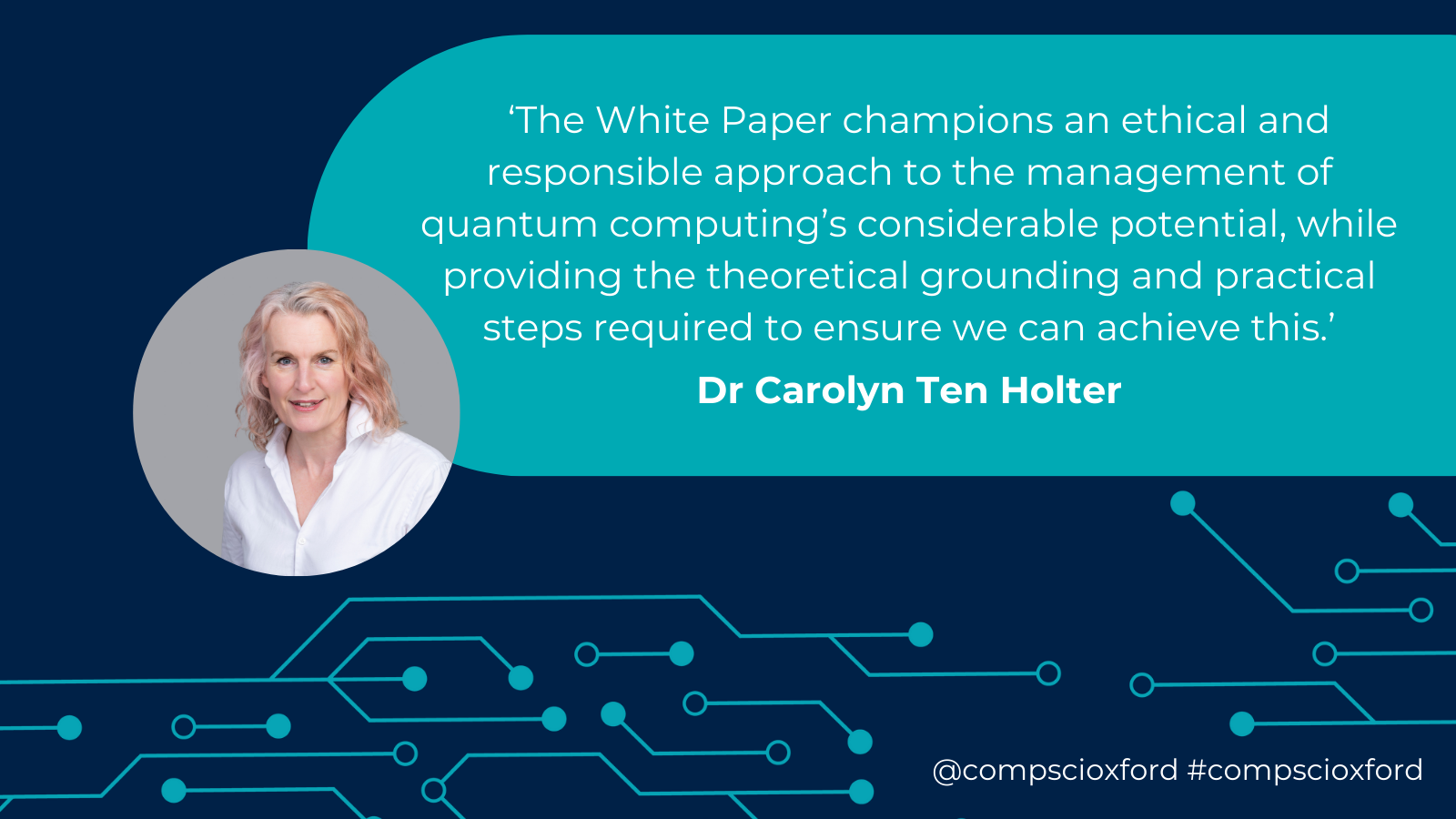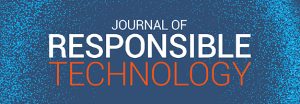Posted: 6th June 2024
Researchers from the Department of Computer Science and EY have published a White Paper on responsible quantum computing, offering insights into the future of the technology. These are drawn from both qualitative and quantitative work carried out with experts, and present key findings relevant to quantum practitioners, policymakers, and researchers.
Rapid developments in quantum computing in recent years have seen a global surge in interest and investment, as nations seek to develop their own quantum programmes. While research shows that public attitudes towards quantum are generally positive, maintaining societal trust and acceptance requires ongoing attention to the responsible development of these technologies, for the benefit of businesses, society, and the planet.
The urgent need to embed responsibility into scientific and technological innovation in this area led to a collaboration between EY and the University’s Responsible Technology Institute (RTI), as part of the Responsible Quantum Computing Communication project, funded by the UKRI’s Quantum Computing and Simulation Hub. The resulting White Paper Towards Responsible Quantum Computing, aims to highlight the importance of proactive risk mitigation, interdisciplinary dialogue, and responsible innovation in shaping the ethical landscape, and harnessing the transformative potential of quantum computing.
Based on initial one-to-one interviews, researchers developed a survey that was distributed to expert technologists, researchers, and policymakers from across academia and industry. It revealed general attitudes towards and knowledge of emerging technologies, and the role of governance in technological innovation, while positing a range of scenarios around the future of quantum computing that the experts were invited to rank and comment upon.
The resulting White Paper uncovers key findings, including the importance of responsible science communication, and of cross-sector and cross-disciplinary collaboration as drivers for increased trust. It highlights the risk of digital divides between nations and the potential of quantum to accelerate and transform the future of business and society.
The paper advocates for a collaborative, integrated approach to responsible innovation, which can only be achieved through co-operation, communication, and dialogue across the ecosystem, proactively shaping the trajectory of quantum computing and ensuring that its development draws on collective values and aspirations. It calls for a balance between experimentation and governance as quantum computing matures, and urgent action towards a responsible quantum future, anchored by human-centred values.
Key recommendations of the paper include:
- Managing expectations around timeframes for quantum computing at scale and proceeding with caution when discussing potential capabilities (and limitations).
- Continuing to foreground equitable access to quantum computing resources, infrastructure, and talent to advance global responses and collaboration.
- Developing more nuanced approaches to the competitive nature of quantum to address capacity issues and mitigate digital divides within and between nations.
- Leveraging governmental capacity for absorbing risk, building markets, shaping governance, and levelling the playing field within and between nations.
- Recognising that the development of this new technology is a marathon, not a sprint, and that treating it like the ‘space race’ may hinder overall progress.
The outcome of the collaboration sees the RTI and EY unified in their drive to facilitate constructive engagement and dialogue across the ecosystem to enable responsible and ethical quantum computing for the benefit of present and future generations.
As we witness rapid global growth in quantum computing, the publication of this White Paper comes at a crucial time in its development. It champions an ethical and responsible approach to the management of the technology’s considerable potential, while providing the theoretical grounding and practical steps required to ensure we can achieve this.Dr Carolyn Ten Holter, Responsible Technology Institute
EY’s Global Quantum Lab has a mission to accelerate EY’s drive in Advanced Technology, leveraging Artificial Intelligence (AI), High Performance Computing (HPC), and quantum technologies, while enabling a focus on responsibility, sustainability, and transformation.
The Responsible Technology Institute, based at the University, draws its membership from national and international institutions, seeking to evolve the broad interdisciplinary community focused on responsible development and deployment of technology.
The paper is authored by RTI members Dr Carolyn Ten Holter, Dr Philip Inglesant, and Professor Marina Jirotka, alongside EY’s Mira Pijselman.
The full paper can be found here: https://assets.ey.com/content/dam/ey-sites/ey-com/en_uk/topics/consulting/ey_oxford_uni_whitepaper_quantum_ethics_05_2024.pdf




